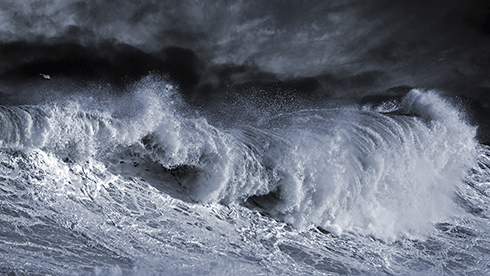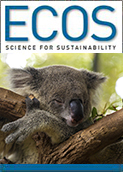
|
Published: 17 July 2014
Winds intensify in coastal waters
International research undertaken by a University of the Sunshine Coast expert in marine ecology has confirmed that global warming is driving winds of change across several vital coastal ecosystems.

|
|
Plankton may be swept away before becoming food for fish if accelerating global warming causes more than moderate wind intensification. Credit:
Thinkstock
|
A paper on global warming and wind intensification in upwelling coastal ecosystems, authored by seven researchers from six universities and institutes, was recently published in Science
Its authors analysed reported wind patterns in the systems over time periods of between 16 and 60 years.
Co-author Dr David Schoeman of the University of the Sunshine Coast (USC) said the results showed that wind intensification caused by global warming was occurring in several major coastal ‘upwelling’ ecosystems.
Upwelling systems thrive on a balancing act of ocean winds blowing away surface water to allow influxes of cold, nutrient-dense water from the depths.
‘Our research found strong and consistent evidence of intensification in summertime upwelling-favourable winds off the west coasts of North America, South America and South Africa,’ he said.
‘These winds drive ocean circulation patterns that underpin extremely productive fisheries areas.’
Dr Schoeman said the findings raised concerns for the future of ecological processes and productivity in these currents.
‘These systems are vital to the world’s food supply in terms of wild fisheries, such as forage fish which are used not only as food, but also in agricultural feeds.
‘The next step is to research possible effects of this wind intensification. Initially we may see more productivity in colder water nearer the coastlines, with more plankton, sardines, anchovies and pilchards.
‘But if accelerating global warming causes more than moderate wind intensification, the cold, nutrient-rich water will be swept offshore too fast and plankton will die and decay before they can be eaten by fish. This not only strips away food for the forage fish, but also leads to the production of oxygen-poor waters, which can have detrimental consequences for entire coastal systems.’
Dr Schoeman said Australia’s coastline had smaller, more localised upwelling systems, but these were not part of the paper’s investigation of the world’s five major systems.
The study was funded by the USA’s National Science Foundation, the National Oceanic and Atmospheric Administration and donors to the Farallon Institute. Dr Schoeman’s research was supported by the Australian Research Council’s contributions to the Collaborative Research Network.
Source: University of the Sunshine Coast



